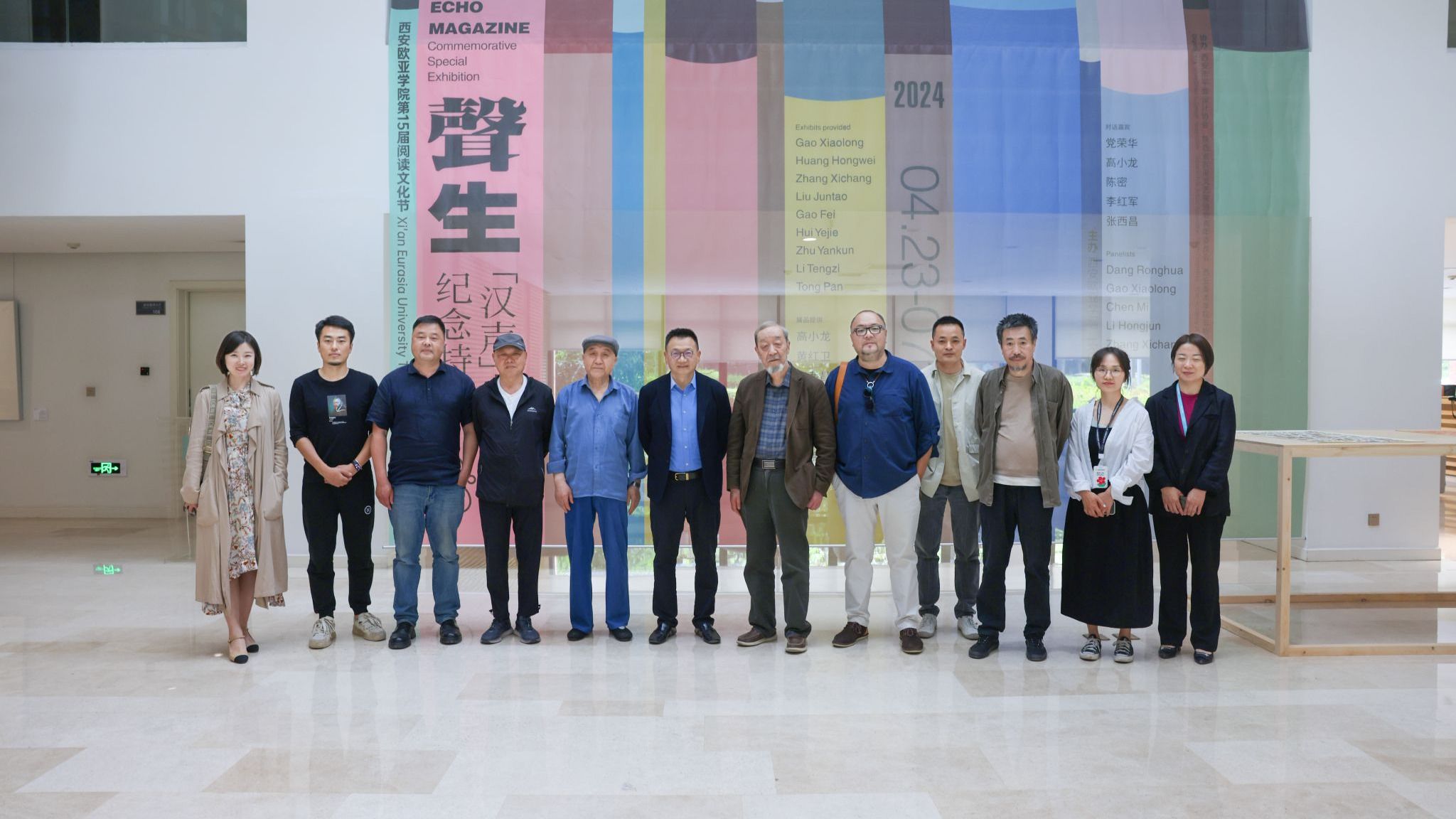Xi’an Eurasia
University boasts an international campus culture, which encourages students toexplore places around the world. Some of the students participate in Eurasia'sexchange programs in cooperation with overseas colleges and universities, somepursue advanced studies in overseas schools, and some have made a successfulcareer overseas ... The "Overseas Eurasiaers" column on the WeChatofficial account of Xi’an Eurasia University tells stories about striving fordreams of Eurasia people studying or working overseas.

Today, we have invitedZhang Jing, a student majoring in accounting (ACCA) and graduated in 2019 fromEurasian School of Accounting to share her experience at the University of Yorkin the UK. Let's follow her to experience the cross-cultural classes ofprofessors from all over the world at the University of York and listen to thestory of how she changed from resisting the UK cuisine to falling in love withit. On the way to that alien country, she was curious about the outside worldand had a lot of dreams for the future. In the UK, she started a romanticjourney to Western Europe. As Zhang Jing said, only when we are full ofcourage, can we encounter more adventures.
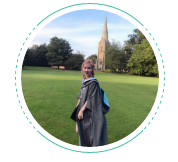
Zhang Jing majored inAccounting (ACCA) Major and was graduated from Eurasia School of Accounting in2019. Zhang won the first prize of the 2017 Management Accounting CaseCompetition of the Eurasia School of Accounting, the second prize of the 2nd "'FirstCup" Accounting Skills Application Competition of Shaanxi Province, thethird prize of the Northwest Competition Zone of the 8th IMA Campus ManagementAccounting Case Competition, and the ZBG Special Education Award. Zhang is nowstudying for a master's degree in accounting and financial management at theUniversity of York in the UK.

Study at theUniversity of York: Having Rich and Avant-garde Learning Experiences
Q: When applying forforeign colleges and universities, why did you finally choose the Accountingand Financial Management Major at the University of York?
Zhang Jing: I appliedfor five schools and received four offers. I finally chose the University ofYork because it is highest-ranking. I chose accounting and financial managementbecause it is most closely linked to my undergraduate major. In fact, I hadanother choice then, that is, the University of Leeds, where I desired to studyvery much. However, the major in Leeds that I could only choose was economics,so I decisively gave up. I knew my abilities and knew what was most suitablefor me. If I had chosen economics, I would probably be bald now.

School badge of theUniversity of York
Q: You majored inaccounting (ACCA) at the Xi’an Eurasia University and you have passed the ACCAexams. How did these help you apply for overseas universities?
Zhang Jing: I have hada broader vision after I learned ACCA courses, and I also had the idea ofstudying abroad after that. Having taken ACCA courses and obtaining itscertificate are helpful for applying for overseas schools because ACCA coursesare just the undergraduate courses of the students majoring in accounting andfinance in the UK universities and colleges. When I study at the University ofYork, I don't have difficulty understanding teachers in class because my studyfor ACCA courses has laid good foundations for me. More importantly, afterlearning the courses, I have known how to be free from arrogance andimpetuosity and how to be more patient and I have known that I should complainless.
Click here to read:
Words from Students Graduated in 2019 | Zhang Jing: University of York, Here I Am!


Student clubs recruit new members when a new term begins
Q: What courses do you need to take for the major of Accounting and Financial Management at theUniversity of York?
Zhang Jing: Our maincourses include Advanced Management Accounting, Advanced Financial Accounting,Financial Strategy and Management, and Dialectical Thinking of Accounting. Thecurriculum is basically the same as that of Xi’an Eurasia University. What hasimpressed me the most in the study is that western education pays muchattention to dialectical thinking. At first, I couldn't adapt to it. Later,however, I gradually get used to it. Now my way of thinking is very differentfrom that at the time when I just came to the UK. Dialectical thinking has evenhelped me a lot in life. For example, now I can think about problems frommultiple perspectives, so I won't worry about them too much. Mr. Lu Xun wrotein A Madman's Diary, "If a thing is always done in the same way, is the waynecessarily right?", which shows dialectical thinking, as well as aconfident attitude, that is, believing what I am thinking about and having thecourage to express it while embracing different opinions.

RCH Teaching Building on the east campus of the University of York
Q: Which courses have impressed you the most?
Zhang Jing: What has improved me the most should be the different teaching styles of teachers from different countries. Our teachers come from Germany, the UK, Russia, India, and many other countries, and every teacher has his or her own teaching style.
The German teacherspeaks very slowly, and he is super gentle. I admire him very much for hisrigor, carefulness, and patience. He manually annotates every piece of teachingmaterial that he prepares to explain to us with pens of different colors. WhenI ask him questions privately, he listens to me very patiently. Knowing I'm nota native English speaker, he always helps me express what I want to and trieshis best to understand me. He is also very thoughtful. At Christmas last year,I saw him in the street. I didn't say hello to him immediately because I thoughthe taught so many students that he probably didn't remember me. Unexpectedly,he waved his hand to me first and said, "Merry Christmas", which wasso moving and surprising.The teacher from theUK is very gentlemanly. I like British English pronunciation very much, so Ienjoy all his classes.
The Russian teacher isvery interesting. He told us that as he had taught a lot of Chinese students,he knew Chinese students were shy of expressing themselves in class probablybecause they were afraid of making mistakes in speaking English. He alwaysencourages Chinese students, "Don't worry about making mistakes. I'm anon-native English speaker like you, so I am also nervous sometimes whenteaching classes. But you can overcome it if you just use English as acommunication tool frequently!" He also likes to discuss Chinese cultureswith us and shows how he likes China. This year, the Russian teacher taught thelast class on the day before the Chinese New Year. He told us that he likedeating dumplings very much and he knew the Spring Festival was of greatsignificance to us, so he finished the class in advance to let us celebrate the New Year.
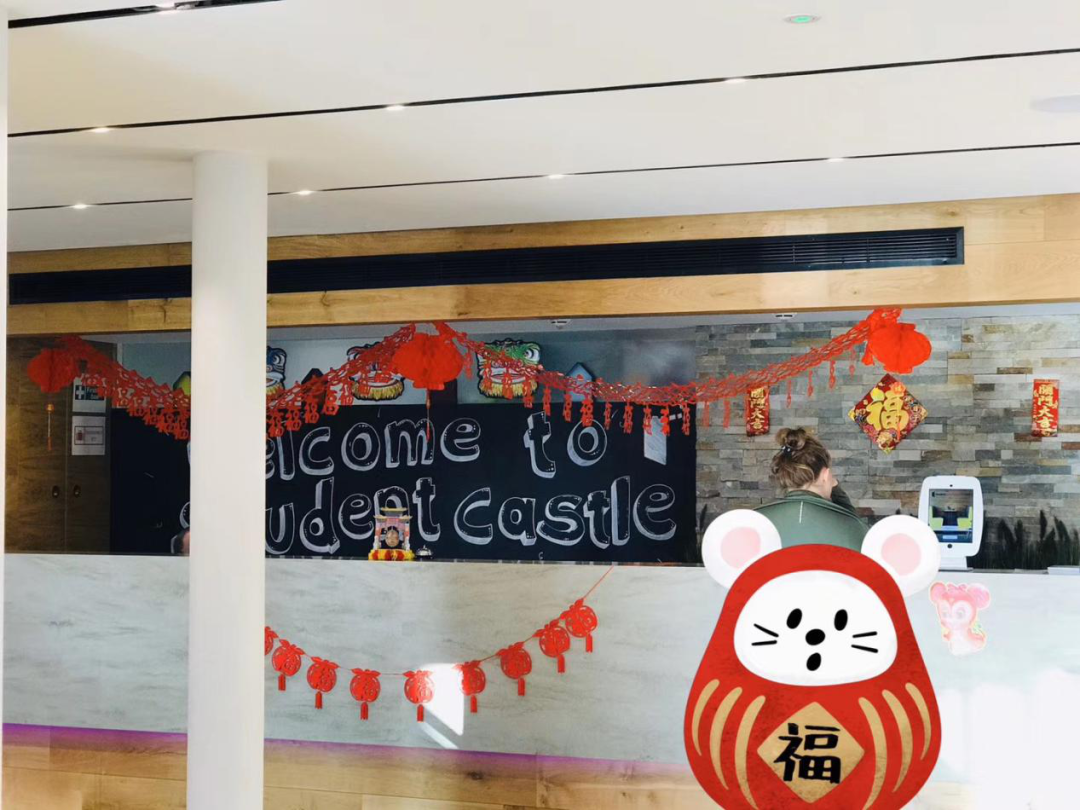
Apartment during the
Spring Festival
Q: What are the
classes at the University of York like? What are the characteristics of the
teaching methods of the teachers?
Zhang Jing: We have classes in two ways. One is the lecture, and the other is the seminar.Generally, teachers give lectures in big classrooms for more than one hundredstudents, when they often teach us theoretical knowledge. Seminars are forconsolidating the knowledge learned from lectures. In a seminar, there areoften only 10-15 students. We mainly use the seminar time to finish theafter-class assignments given in lectures and teachers use it to answer ourquestions one by one.
All teachers cananswer our questions after class, but we must make an appointment in advancevia email. Western people care a lot about the balance between work and life.If you need the help of teachers to deal with something, you must ask them aboutit withn workdays, because they will enjoy the weekends with their families.
In fact, the way ofworking shows not only western people's high work efficiency but also thecultural difference between China and the West. Although they cannot alwaysfinish working tasks within working hours, they don't care a lot about thatbecause in their views, enjoying life is more important. That is also the lifeI long for in the future. So when I finish my studies in the UK and return toChina, I need to keep up with the pace of life in China. I hope that I can alsofind a balance between work and life after I start my career.
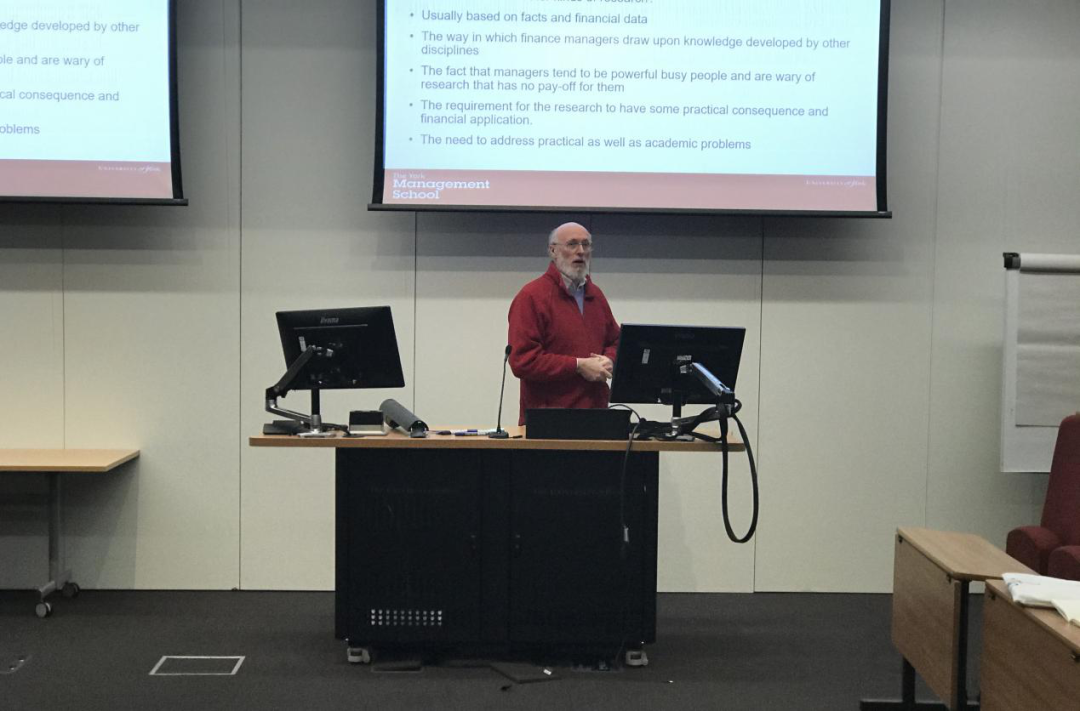
Class at the University of York
Q: Talk about your unforgettable off-campus activities at the University of York?Zhang Jing: My friendsand I participated in various off-campus activities, such as experiencing thehaunted house in York Maze on Halloween, watching the Torch Festival inEdinburgh on Christmas Day, visiting the Winter Wonderland on New Year's Eve inLondon, and saying Happy New Year to strangers in the streets of London. I wasalso very impressed by the psychological counseling service provided by theschool. The school is quite concerned about people's mental health. The schoolwill send an updated email about the psychological counseling center serviceevery week, and we can contact the counseling center at any time if we need it.In particular, during the quarantine period this year, there were many papersto write, so the school granted us a privilege, that is, we could apply todelay the deadline for papers without providing proof. The reason that highpsychological pressure affected learning efficiency was enough for us to applyfor the delay.

Halloween | New Year in London | Christmas Bazaar
Q: What interestingthings have you experienced and what difficulties have you met in your studyand life at the University of York?
Zhang Jing: I would say the difficulties I met are also a lot of fun. Even if they were verydifficult to deal with at that point, we like to roast our lives sometimes, sothey're actually full of fun when we look back on them. For example, the wintertime, when the night is so long, is extremely impressive for me. There is aneight-hour jet lag between the UK and China in winter. On that evening when thesummertime with seven-hour jet lag changed to the wintertime, the time jumpedfrom two a.m. to one a.m., which is like back in time. I had 25 hours on thatday. In winter, it gets dark at three or four p.m., and it doesn't dawn untilabout nine a.m. the next day. As the weather gets colder and the daytime getsshorter, all shops are closed, except for supermarkets, so the atmosphere inthe city may become somewhat depressing.


School at 3:30 p.m. in winter time

Life in Western
Europe: A Romantic Picture on the Corridor of Time
Q: What's your first impression of the UK? Has your impression of it changed after you lived there for a period?
Zhang Jing: My impression of the UK when I just came there was that there was little deliciousfood. During the first week, what I ate most were instant noodles and friedfish and chips. After living for a period, however, my attitude toward the foodthere changed. Despite the undistinguished British food, I found a lot of deliciousThai and Vietnamese food in the UK. Another thing I found is that people dothings inefficiently in the UK. Once, I took a bank letter from the school toapply for a bank card. The bank worker asked me to go back to school to take anew letter just because the room number in the address column was written afterthe name of the apartment. I asked whether it worked if I marked it and changedthe order. The worker said no and still demanded a new bank letter. I waswondering why the worker couldn't be more flexible. It would take me at leasttwo hours to go back to school and line up to get a new bank letter, let alonethe reappointment with the bank. I think this is a disguised way to put burdenson both sides.
But I have also met alot of lovely people: an old man I met in a supermarket introduced with a smileto me his first pick of baking bread after seeing through my hesitation inpicking; the guy selling hamburgers at the Christmas Bazaar treated me for freeas I had no cash with me, then I looked for him for a week and tried to payhim, but I couldn't find him; a kind old woman said to me when I pushed ashopping cart with a Lotso in it in a supermarket that this Lotso (bear doll)would warm me throughout the winter.


The rainbow after the rain at York Minster
Q: How about your daily life in the UK?
Zhang Jing: Theschedule for the one-year postgraduate program in the UK was very tight. As wehad to finish within one year in the UK the studies that we need 1-2 years tofinish in other countries, we felt great pressure. The biggest differencebetween studying in the UK and in China is: The student assessment mode of theUK is mainly based on papers, which require students to consult a large numberof materials, and the "Deadline" is the only driving force.
Q: Have youexperienced any cultural differences in life? And how have you adapted to them?
Zhang Jing: Eatinghabits in the two countries are totally different, and so is the mealtime.Usually, the UK people have a rich brunch around 10 a.m., which is relativelylate compared with the breakfast time in China. If they don't have work to doin the afternoon, they will have nice afternoon tea, which is followed by arich dinner. So most of our classes are at noon, and I have to adjust mymealtime.
Speaking of afternoontea, the leisurely and slow life in the UK is really comfortable. You may seethe elderly sitting in coffee shops with a pot of tea or coffee, holding handswith each other, and chatting with each other. You may also see some people spenda whole afternoon with books and a cup of coffee and passengers reading bookson the London Tube.


Afternoon tea at York
Q: How do you spend your spare time after school?
Zhang Jing: I often drink some red wine to relax myself, and drinking a little red wine in theevening can help me sleep. I also like to discover delicious food. Sometimes Icook at home with friends from different cities, and I feel really warm at thattime. Unexpectedly, the greatest pleasure in the UK for me is shopping insupermarkets. When I first arrived, I didn't know what was palatable in supermarkets,so I followed the local people and chose what they chose. During the pandemic,I went shopping every two weeks, so I bought different kinds of food.


Youpo noodle made with friends
Q: Which cities orcountries have you been to during the period of studying abroad? Can you sharesome of your unforgettable experiences and moments?
Zhang Jing: During theChristmas holiday, I went to the Scottish Highlands, Loch Ness, and the Isle ofSkye, and I saw the snow-covered Glenfinnan Viaduct leading to Hogwarts. Atthat time, I was under the delusion that I could go to the Hogwarts School ofWitchcraft and Wizardry if there was a train running through to take. By theway, there was no Nessie but lovely deer in Loch Ness. The Scots were veryhospitable. Also, I was impressed by the unpredictable weather there. It rainedand hailed for three out of the four days when I stayed in Scotland. To mysatisfactin, on the last day, when I was in St Andrews, it cleared up. There'snothing more enjoyable than going to the seaside on a sunny day.

George square in Glasgow | London | St Andrews

Look into the Future: To See the Farther World
Q: In your view, whatshould a student pay attention to during undergraduate studies if he or shewants to get the offer of their dream overseas master's programs?
Zhang Jing: It's basedon the specific requirements of the schools they choose. The schools in somecountries may give priority to language proficiency (such as IELTS score),while in some other countries, the schools value the average score ofundergraduate courses most, and internship experience and prizes ofcompetitions are also useful. Probably, some students don't plan to go abroaduntil they are juniors or even seniors. At that time, it's a little late toimprove the average score or take an internship, So it's better to study hardand improve themselves in competitions from the freshman year.
We all hope to have arelaxing period after the college entrance examination and we all feel verycurious at the beginning of the university. After that, we should graduallylearn to balance entertainment and learning. Work hard, play harder. In fact,studying hard also provides an extra option for the future. After all, anexcellent GPA carries conviction anywhere. Whether you're going to studyabroad, take part in the postgraduate entrance exam, or apply for a job, it isthe most simpleand direct way to prove your learning ability.
Q: What abilities doyou think are important for applying for schools and studying abroad?
Zhang Jing: It'simportant to learn how to collect information by yourself and to fight forrights and interests for yourself. Don't act like a hands-off boss even if youhave entrusted an intermediary agent for the application. Then keep yourcuriosity. Don't be a chicken, and to experience as many different things asyou can during the period of studying abroad.
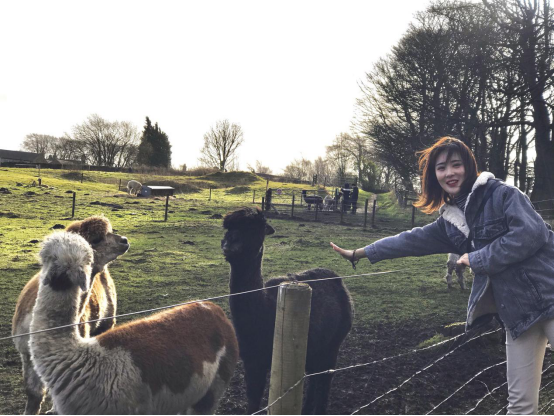

See alpacas in Sheffield
Q: What's your biggestchange when you study abroad?
Zhang Jing: My biggest change is in the mindset. This period has taught me to look ahead rather than regret what has happened. The outbreak brought many things to a halt, and Ihave really understood the saying that "Plans always fall behindchanges". The UK's response to the pandemic was a month later than that ofChina. The quarantine measures were triggered in March and ended in June. Ihaven't returned to China. On the one hand, I think it's risky to return toChina at the peak of the pandemic, and on the other hand, it's reassuring forme to get the school stuff done before returning to China.
I had a regularroutine during the quarantine period, and to my surprise, I was gone on sports,literally putting into practice what the elders always remind me of, that is,"Health is the most important". We should probably work hard at theage of twenties, but we should also stay healthy. After all, nothing lastsforever. You can stop and have a rest when you feel tired. Sometimes you haveto slow down for more stable and rapid progress. Besides, my cooking skill gotimproved during this period. I'm not a green hand in the kitchen anymore andI'm not afraid to cook now.
Q: What are your plansfor the future?
Zhang Jing: Theshort-term plan is to obtain the dream offer in the recruitment in Autumn,learn a language if time permits, and come back to the UK early next year toattend the graduation ceremony. After all, the graduation ceremony marks theend of my school life. I can't make the long-term plan now. I will take eachday seriously and make adjustments if necessary.
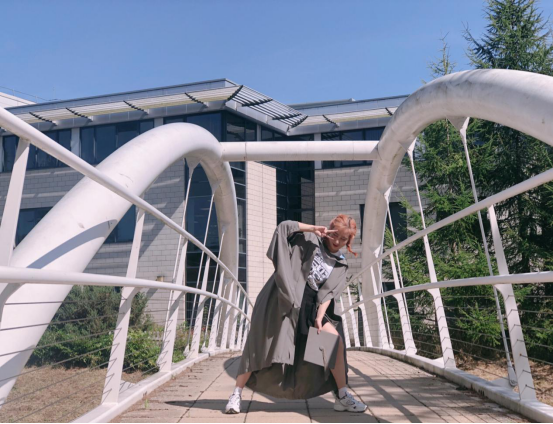

Q: Have you ever missed Xi’an Eurasia University while studying in the UK?
Zhang Jing: Actually,I have made an appointment with my friends to go back to Xi’an EurasiaUniversity as soon as I return to Xi'an. We will together enjoy delicious foodin Eurasia. I see on Eurasia's Sina microblog and WeChat official accounts thata lot of new buildings have been built and great changes have taken placethere. I wonder if it is really my school. So I must go back and have a look.
Q: The freshmenenrolled in 2020 are about to register for their new term. What do you want tosay to those who want to study abroad?
Zhang Jing: Cherishthe moment, don't waste time, and don't count on "next time".Learning is the major task in the life of studying abroad, but it's not theonly thing we need to do. To see the world, to broaden minds, and to exploreourselves are also of significance. On holidays like Christmas and Easter, theycan travel to other countries for appreciating different cultures. On weekends,they can visit other cities in the country where they will stay for one or twoyears. There are so many roles in life. We may be a "billionaire, king orqueen, or a wandering artist, or wild wind". Keep in mind, choose yourfavorite.
Overseas Eurasiaers
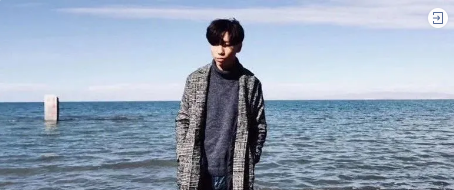

How does he chase his sports dream during the one-year exchange in Spain?
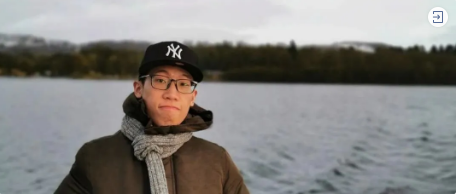

Traveling to England makes his overseas study fantastic





